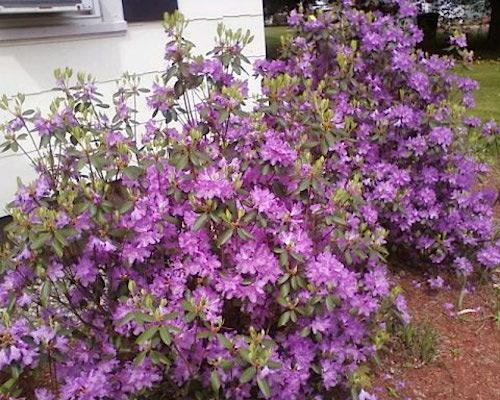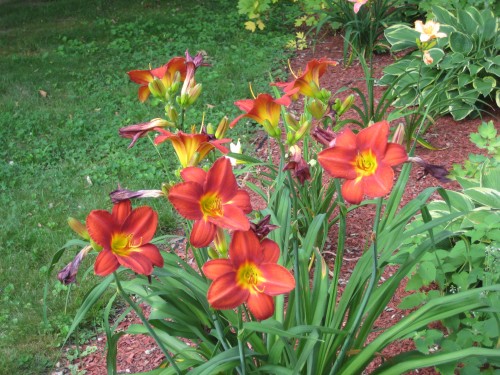The night-blooming cereus is the comet of the floral world, the vampire, the queen of the night.
Known as the selenicereus grandiflorus, the night-blooming cereus looks like a dead bush for most of the year. But for one midsummer night, just as darkness falls, its stunning white flowers open to the applause of stars. The blossom emits an exquisite scent that reportedly resembles sweet vanilla and warm gardenias. Then, when the evil sun rises in the morning, the flowers close and disappear.
This amazing plant tends to grow in desert climes, so I’ve not had the good fortune of viewing its one-night-only appearance in person. Others have, though, and were kind enough to share the event online:
Closer to home, I’m thrilled to experience a similar show in the early spring. The large plant in front of our living room window, which I’m told is a Rhododendron bush, blossoms for only a few days each year. Soon after the peepers begin singing for mates, the bush will burst into delicate purplish pink flowers.
During this short spell, it is not uncommon to see large, fat bumblebees flitting from blossom to blossom, gathering nectar and pollen and taking their riches back to the colony. Since bumblebee species are on the decline, I’m always happy to see these creatures return to feast on the bush’s bounty.

